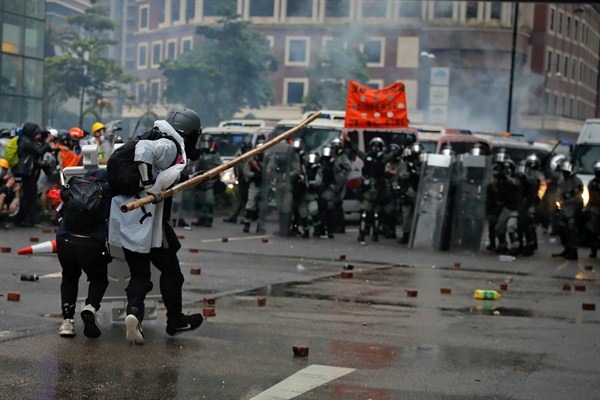One of the first things that clinched my interest in China—and this will inevitably date myself—was its fierce and utterly unique political language, the stuff of endless campaigns of denunciation and ideological warfare. Think the bloodcurdling epithets used to attack enemies during the late Mao period, like “running dog of imperialism” or “capitalist roader,” and, when that long era finally wound to a close, “gang of four.”
Language like this has almost entirely disappeared from the rhetorical lexicon of the Chinese state. But there is one important form of it that has remained on the shelf, in two words found only in China: “splittism” and “splittist.” The first is for any movement that seeks to break away from China; the second is used to label and thereby castigate any adherent of such a movement and target him or her for destruction.
For most of its existence as a peculiarly Chinese political term, “splittism” was about the threat, real or contrived, posed by people who were labeled as separatists, usually meaning members of ethnic minorities lurking somewhere along the country’s vast periphery. To designate an individual or a group of people “splittists” was almost always to announce the start of an implacable campaign of suppression against them.

